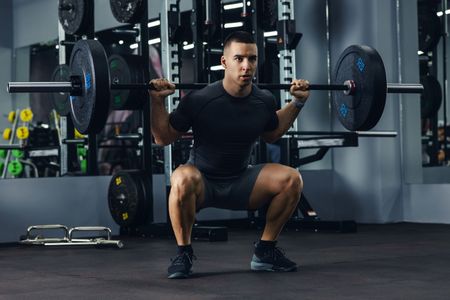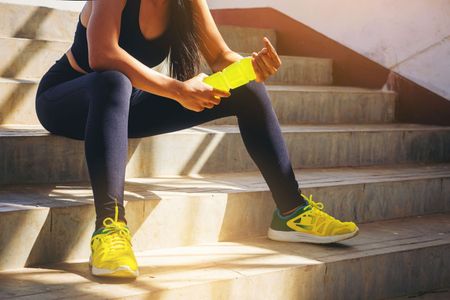Hydration is a cornerstone of good health, yet it’s often misunderstood and underestimated. While the “eight glasses a day” rule is popular, the amount of water you need can vary greatly depending on factors like age, activity level, climate, and even diet. Studies show that just a 1-2% drop in body water can start to impair cognitive function, mood, and physical performance.
Water doesn’t just keep us alert and energized—it plays a critical role in regulating body temperature, flushing out toxins, aiding digestion, and even maintaining skin health. Knowing your own hydration needs can transform your well-being, helping you to feel sharper, more energized, and ready to take on the day.
In this article, we’ll unpack what hydration really means, how to recognize when you’re well-hydrated, and the science-backed recommendations for different lifestyles and situations.
The Importance of Water for Body Function
Water is central to nearly everything our bodies do. It makes up around 60% of our body weight, and hydration powers essential functions—from regulating body temperature and aiding digestion to nutrient absorption and waste removal.
Temperature Regulation:
Water helps the body maintain a stable internal temperature, primarily through sweating, which cools the skin.
Nutrient and Oxygen Delivery:
Blood is about 90% water, which enables it to efficiently transport oxygen, nutrients, and hormones throughout the body while also helping remove waste products.
Waste Removal:
Water supports the kidneys and liver in flushing out toxins, preventing waste buildup, and maintaining overall health.
Muscle Function and Performance:
For athletes or anyone who is physically active, staying hydrated is crucial. Water supports muscle contractions, reduces the risk of cramps, and helps manage fatigue. Hydrated muscles are less prone to injury, enhancing physical performance and recovery.
Joint Lubrication:
Water lubricates joints, reducing friction and helping prevent wear and tear.
Skin Health:
Proper hydration keeps the skin elastic, resilient, and naturally glowing. It helps combat dryness and supports the skin’s overall health and appearance.
Cognitive Function:
Even mild dehydration—just a 1-2% loss of body water—can lead to mental sluggishness, irritability, and difficulty concentrating. Staying hydrated is essential for optimal brain function and clarity.
Blood Pressure:
Adequate hydration helps maintain healthy blood pressure levels by promoting proper fluid balance and supporting cardiovascular health.
Mood and Energy:
Dehydration can negatively affect mood and energy levels, leading to irritability and fatigue. Staying hydrated promotes emotional balance and increases overall energy.
Organ Protection:
Water cushions and protects vital organs like the brain and spinal cord, preventing damage and supporting their proper function.
Digestive Health:
Water aids in digestion, breaking down food and helping the body absorb nutrients more efficiently. It also prevents constipation by ensuring that the digestive tract remains properly lubricated.
The Bigger Picture of Dehydration:
When we consistently fall short on water, every system in the body faces strain. This can lead to issues like headaches, constipation, kidney stones, urinary tract infections, and more severe health problems.
Proper hydration isn’t just a wellness trend; it’s fundamental to feeling and functioning at your best every day.
How Many Ounces of Water Should I Drink a Day?
While hydration needs can vary based on factors like age, activity level, and climate, there’s a general rule of thumb for how much water adults should aim for daily. The recommended daily intake includes all fluids consumed—water from beverages and food.
For Women:
The recommended daily water intake is about 92 ounces (2.7 liters). This includes the water content from food, drinks, and other beverages throughout the day.
For Men:
Men generally require more water, with a recommended intake of 125 ounces (3.7 liters) per day. Again, this total includes water from all sources, including beverages and foods.
Factors That Affect Hydration Needs
While eight glasses a day is a general recommendation, individual hydration needs vary. A person’s water intake requirements depend on factors like age, body weight, activity level, and even the climate they live in.
- Age: As we age, our bodies tend to hold less water, and our sense of thirst may diminish, making older adults particularly prone to dehydration.
- Body Weight: Larger individuals typically need more water than smaller individuals because they have a larger volume of tissues requiring hydration. A common guideline is to drink half an ounce of water per pound of body weight daily. For example, a 150-pound person would aim for about 75 ounces (just over nine 8-ounce glasses) of water daily.
- Activity Level: People who are more physically active lose more water through sweat, requiring a higher intake to replenish fluids. For each hour of exercise, aim to add an additional 12-24 ounces of water, depending on the intensity of the activity.
- Climate, Humidity, and Altitude: Your environment can significantly impact how much water your body needs. In hot and humid conditions, you sweat more, but since sweat doesn’t evaporate as easily, it’s harder for your body to cool down, making hydration especially important. In cold climates, you might not feel as thirsty, but the dry air and a process called cold-induced diuresis (where your body increases urine output to conserve heat) can lead to fluid loss. Plus, staying warm requires more energy, which can subtly raise your hydration needs. At high altitudes, your breathing rate increases to compensate for lower oxygen levels, causing more water loss through respiration. Your body also produces more urine as it adjusts to the altitude. In any of these extreme conditions, adding an extra 8–16 ounces of water to your daily intake can help you stay well-hydrated.
- Diet: A diet high in salt, sugar, or protein can increase your water requirements, as your body needs extra fluids to process these nutrients. For example, salty foods can lead to increased thirst and water retention; while sodium is an important electrolyte for hydration, too much can cause frequent urination and discomfort, making it essential to drink water after salty meals. Alcohol also affects hydration by acting as a diuretic—it suppresses vasopressin, a hormone that helps your kidneys retain water, which leads to fluid loss. To stay hydrated when drinking alcohol, it’s important to alternate with water before, during, and after. Similarly, caffeinated drinks like coffee, tea, and soda can have a mild diuretic effect, especially in large quantities (250–300 mg of caffeine or more), so it’s a good idea to pair them with extra water. On the other hand, foods high in water content—like fruits and vegetables—can help you meet your daily fluid needs more easily and support overall hydration.
- Hormones: Shifts in hormone levels, especially throughout womens’ menstrual cycles, can influence how your body retains and uses water. When hydration dips during this time, symptoms like low energy, irritability, and cramping can worsen. Staying well-hydrated can help reduce discomfort and support your body’s balance.
- Sickness: Illnesses such as fever, diarrhea, or vomiting increase your body’s need for fluids. When you’re sick, your body loses more water through sweat, increased urine output, or digestive issues, leading to dehydration. It’s especially important to drink water or electrolyte-rich fluids to stay hydrated and help your body recover. Make sure to replenish fluids regularly, especially when experiencing symptoms like fever or vomiting, to avoid further dehydration.
By considering these guidelines, you can adjust your daily intake to better match your specific hydration needs. Including hydrating foods such as cucumbers, watermelon, and oranges in your diet can also help keep you hydrated.
Hydration Before, During, and After Exercise
Hydration is a key factor in exercise performance and recovery. Whether you’re a casual jogger or a competitive athlete, staying properly hydrated before, during, and after physical activity can make a big difference.
Before Exercise: Drink water in the hours leading up to your workout. A good guideline is to drink about 16-20 ounces two to three hours before starting exercise. This ensures your body is prepared without causing stomach discomfort from drinking too much too quickly.
During Exercise: It’s generally recommended to drink about 7-10 ounces of water every 10-20 minutes during exercise. This can sound like a lot, but it’s helpful for staying hydrated during intense or long workouts, especially in hot environments. For shorter or lower-intensity sessions (under an hour), sipping water as needed and hydrating well before and after may be sufficient.
If you’re exercising for over an hour or sweating heavily, these intervals help replenish lost fluids, and it’s a good idea to incorporate a sports drink with electrolytes. Electrolytes replace salts lost through sweat, which plain water alone can’t restore.
After Exercise: Post-workout hydration is just as important as it helps with muscle recovery and prevents dehydration. Aiming for 16-24 ounces of water for every pound lost during exercise is a helpful way to rehydrate effectively. You can check this by weighing yourself before and after exercise to see how much water weight you lost.
Signs of Dehydration to Watch For
Recognizing the signs of dehydration early is crucial in preventing more serious health complications. While some symptoms are noticeable, others may be more subtle. Staying alert to these warning signs can help ensure you stay properly hydrated and avoid unnecessary discomfort or potential health issues.
1. Thirst
Thirst is the body’s initial signal that it needs more fluids. However, by the time you feel thirsty, you may already be mildly dehydrated. It’s important to drink water regularly throughout the day, even before you feel thirsty, to maintain optimal hydration.
2. Dark Urine
Urine color is one of the clearest indicators of hydration. Well-hydrated individuals usually have urine that is light yellow or clear. Dark yellow or amber-colored urine is often a sign of dehydration and can be one of the first visible clues that you need to increase your fluid intake.
3. Dry Skin and Lips
Dry, cracked skin and chapped lips are common signs that your body lacks moisture. Dehydration affects your skin’s ability to retain water, leading to dryness and a lack of elasticity. If you notice these symptoms, it may be time to hydrate more often.
4. Dizziness or Lightheadedness
Feeling dizzy or lightheaded, especially when standing up quickly or during physical activity, may indicate dehydration. When the body lacks adequate water, it can affect blood circulation and lower blood pressure, leading to these symptoms. If you experience dizziness, sitting down and rehydrating can help restore balance.
5. Fatigue
Water plays a key role in maintaining energy levels and keeping your body functioning efficiently. Dehydration can make it difficult for your body to perform daily tasks and lead to feelings of fatigue, sluggishness, and a general lack of energy. If you’re feeling unusually tired despite a full night’s rest, dehydration could be the culprit.
6. Muscle Cramps
Dehydration can lead to an imbalance of fluids and electrolytes in your body, making your muscles more prone to cramping. If you experience cramps, especially during physical activity or exercise, it’s a sign that your body needs more fluids to restore balance and prevent discomfort.
7. Headaches
A common symptom of dehydration is headaches. When your body lacks water, the brain can shrink slightly, leading to pain and discomfort. If you frequently experience headaches, consider whether dehydration could be a contributing factor.
8. Dry Mouth and Bad Breath
A dry mouth and foul-smelling breath are other signals that your body may not be getting enough water. When dehydrated, your saliva production decreases, leading to a dry, sticky mouth and bad breath. Keeping your mouth moist by drinking water can help improve these symptoms.
9. Reduced Sweating
While it may seem counterintuitive, dehydration can lead to a reduced ability to sweat. Sweat helps regulate body temperature, so if you notice that you’re sweating less than usual, especially during physical activity or in hot environments, dehydration may be at play.
10. Constipation
Water is necessary for proper digestion, and dehydration can affect the functioning of your digestive system. A lack of water can cause stool to become harder and more difficult to pass, leading to constipation. Staying hydrated helps keep the digestive system running smoothly.
What to Do When You Experience Dehydration Symptoms
If you notice any of these signs of dehydration, it’s important to address them quickly. Begin by drinking water slowly but steadily. Avoid drinking large amounts all at once, as this can lead to discomfort. For severe cases of dehydration, especially if you experience dizziness, confusion, or a significant decrease in urination, seek medical attention immediately.
To prevent dehydration, make a habit of drinking water consistently throughout the day, especially when engaging in physical activity, in hot or dry climates, or when you’re sick.
Water vs. Sports Drinks: What’s Better for Workout Hydration?
For most workouts under an hour at a moderate intensity, plain water does the job of keeping you hydrated. It’s simple, effective, and free from added sugars or calories. However, during prolonged or high-intensity activities—especially those lasting over an hour or taking place in hot conditions—sports drinks can be beneficial because they contain electrolytes and carbohydrates. These ingredients help replace lost salts and provide a quick energy boost, keeping you hydrated and fueled.
If you’re mindful of added sugars, there are plenty of low-sugar or natural options to consider. Coconut water is a great natural source of electrolytes with less sugar than many sports drinks, and it provides potassium, which is important for muscle function. You can also find electrolyte powders or tablets that can be added to water and often come in low or no-calorie options.
The Role of Electrolytes in Hydration
Electrolytes—key minerals like sodium, potassium, calcium, and magnesium—are essential players in keeping your body running smoothly. They help your nerves fire, make your muscles contract, balance your blood pressure, and—most importantly for workouts—keep you hydrated. When you’re sweating heavily, you lose these minerals, and if they’re not replaced, you might start feeling tired, crampy, or even a bit foggy.
Electrolytes don’t just hydrate you—they make it easier for your body to actually absorb and retain water, so they’re especially helpful during long, intense workouts or in hot weather.
Fortunately, you don’t have to rely solely on sports drinks to get them. Eating bananas, oranges, leafy greens, or drinking coconut water can provide a solid dose of natural electrolytes.
Myths and Facts About Hydration
Misconceptions about hydration are common. Here are a few myths and facts to clarify:
Myth: If you’re not thirsty, you don’t need to drink water.
Fact: Thirst isn’t always a reliable indicator, as some people may not feel thirsty until they’re already dehydrated.
Myth: Drinking lots of water helps “detox” the body.
Fact: While staying hydrated supports kidney function and helps flush out waste, drinking more water than necessary won’t have a dramatic detox effect.
Myth: Clear urine means you’re perfectly hydrated.
Fact: While very pale urine is a good indicator of hydration, completely clear urine could mean you’re overhydrating, which can dilute essential minerals. A light yellow color is typically a sign of healthy hydration.
Myth: Caffeinated drinks don’t count toward hydration.
Fact: Though caffeine is a mild diuretic, moderate amounts of coffee or tea still contribute to your daily hydration. Studies show that the water content in these beverages offsets any minor fluid loss from caffeine.
Myth: Cold water is better for hydration than warm water.
Fact: Water temperature doesn’t affect hydration, but drinking cold water may feel more refreshing during a workout or on a hot day. Ultimately, any water you drink, regardless of temperature, will hydrate you.
Tips to Increase Daily Water Intake
Drinking enough water can be a challenge, but with a few simple strategies, it can become a natural part of your routine.
- Start Your Day with Water: Drink a glass first thing in the morning to rehydrate after sleep and boost your energy for the day ahead.
- Carry a Reusable Water Bottle: Having a water bottle with you can serve as a reminder to stay hydrated and make water accessible wherever you go.
- Set Reminders: Use an app or set alarms on your phone to remind yourself to drink water throughout the day.
- Infuse Water with Flavor: If plain water feels boring, try infusing it with fruits, herbs, or a splash of citrus to make it more appealing.
- Eat Water-Rich Foods: Incorporate foods high in water content, like cucumbers, oranges, and strawberries, into your diet to supplement your water intake.
- Make It a Habit: Try linking water drinking to a habit you already have, like having a glass of water after each bathroom break or with every meal.
- Drink Water Before Meals: Sipping water before eating not only helps with hydration but can also support digestion and curb overeating.
- Track Your Intake: Use a water-tracking app or mark lines on your bottle to visualize progress throughout the day.
- Keep Water in Sight: Place bottles or glasses of water in places you frequent—like your desk, kitchen counter, or nightstand—as a visual cue to drink more often.
Conclusion: Listen to Your Body
Hydration is essential for our bodies to function at their best. While there are general guidelines, each person’s hydration needs are unique. Factors like body size, climate, and activity level all impact how much water you need each day. Pay attention to signs from your body, such as thirst, urine color, and energy levels, as these can all indicate how well-hydrated you are.
Incorporate a mix of water, electrolyte replacements, and hydrating foods to keep your body feeling balanced. Whether you’re an athlete or just going about your daily routine, staying mindful of your hydration needs will help you feel and perform your best. Remember, hydration is more than just a number; it’s about listening to your body and giving it the water it needs to thrive.
Looking for more ways to stay healthy and energized? Explore our other articles for fitness, health, and wellness tips.



